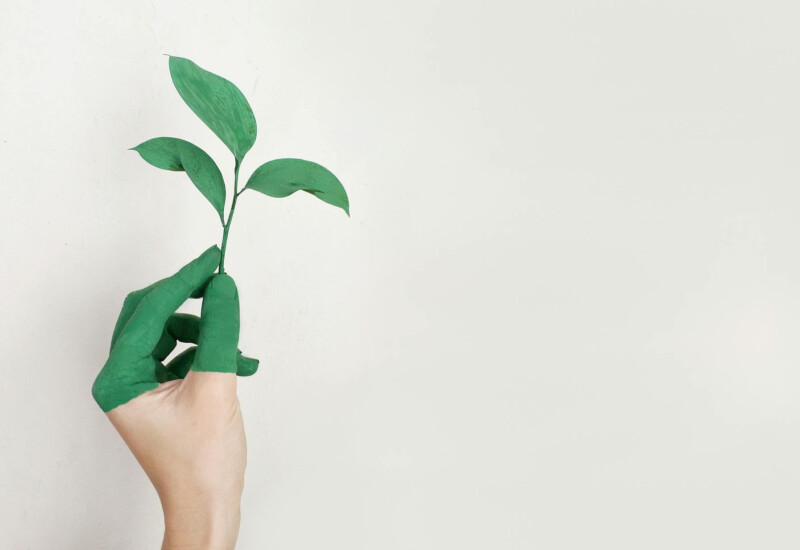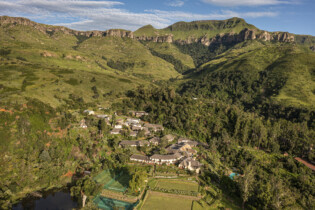Event Greening Forum (EGF) Chairman John Arvanitakis and MICE industry mogul Projeni Pather recently discussed the importance of sustainability in the new Africa Event Connect podcast.
During the recent Africa Event Connect podcast, host Projeni Pather chatted to Event Greening Forum (EGF) Chairman John Arvanitakis about the importance of sustainable events. Projeni and John discuss some of the sustainability initiatives the EGF is currently spearheading and how partnerships can contribute to the industry reaching its net zero carbon emissions target by 2050.
The EGF, an affiliate association partner to the Africa Event Connect podcast, is dedicated to transforming the MICE industry by encouraging, advising, educating and training members and associations on environmentally responsible practices. John explained that the EGF was founded in 2002 by South Africa’s eight leading event industry associations – the Exhibition and Event Association of Southern Africa (EXSA), the Federated Hospitality Association of Southern Africa (FEDHASA), the Southern Africa Tourism Services Association (SATSA), the International Festivals & Events Association (IFEA) Africa, SA Roadies, SA MICE Academy, the Technical Production Services Association (TPSA) powered by SACIA, and the Southern African Association for the Conference Industry (SAACI) – as an advisory body. Over the years, it has become a member organisation, with over 60 event-related companies signed up to the forum to date.
“In South Africa, sustainability is important both from an environmental, economic and social point of view – the triple bottom line, if you will. The EGF’s biggest challenge is convincing the industry that even though sustainable events are slightly more expensive, it’s necessary,” John pointed out. “The devastating impacts of climate change and global warming are escalating, with the United States experiencing more hurricanes and most of Africa currently facing droughts, for example. In Limpopo, the Kruger National Park is battling large fires, with campsites and accommodation being evacuated as it spreads.”
Time to do things differently
He emphasised that the industry needs to rethink its contribution to this – from the waste we generate and the materials we use to the water and electricity we consume during events. “We’re still stuck in a comfort zone, doing things the way they’ve always been done, despite their harmful effects on the environment.”
John explained that there hasn’t been much sustainable action because the industry is not speaking with one voice. “There are many industry associations and they all seem to be doing things in silos. The EGF is here to unite those many voices and advocate for them, and one of the initiatives we’re currently driving is closer cooperation between various industry members and partners, such as partnering on this podcast.”
Projeni, who is also the Vice Chair of the Association of African Exhibition Organisers (AAXO) and Spokesperson for the SA Events Council, noted that the MICE industry is a large ecosystem consisting of organisers, venues, suppliers, exhibitors, clients, and more. “There are various stakeholders and it affects each of us differently. But one thing that you said earlier, about accommodation burning down in the Kruger National Park, made me think how it’s going to erode away the resources that I need to tap into to make my events successful as an organiser. So we can’t just sit back and say it’s too expensive, because if things carry on the way they are now, there will be nothing left for us to utilise,” she said.
John agreed, saying that, if we keep using and wasting large amounts of water and electricity, it has a direct impact on the local communities where we’re hosting events too, because we’re taking away resources that they need to live their daily lives.
He added that we can claim to create jobs as an industry, but we have to ask ourselves whether we are employing the right people in the right areas. “It’s one thing to bring tourism to local communities to support their economies… but are the event organisers looking to local communities to create employment? We’re still seeing organisers shipping in people from outside of some regions to help because they feel the locals aren’t correctly trained.”
A balancing act
Projeni shared that when she first started in the industry, like many other event organisers, she only knew about the three Rs: Reuse, reduce, and recycle. Now, there are four Rs (including repurpose), and things like community engagement to consider too.
John said he understands why everyone finds event greening so challenging, with all of these things coming at you at once. “At the end of the day, it has to be a juggling and balancing act.”
He stressed that skills transfer is very important in South Africa, particularly for people in outlying areas. The EGF has various resources and initiatives available that are helping to facilitate this. The Green Database, for example, which is hosted and maintained by the EGF, lists over 500 suppliers in the industry that have incorporated sustainable practices into their operations.
The EGF is a signatory of the Net Zero Carbon Events (NZCE) initiative, which is tackling the sustainable development goals (SDGs) set out by the United Nations that relate to the MICE industry specifically. The EGF has hosted multiple virtual workshops on logistics, materials, energy, measurement and reporting, and more, featuring both local and international experts to share their insights and industry best practices. You can watch the recordings of these workshops on the EGF’s YouTube channel, or sign up for the EGF’s newsletter to find out when they take place so you can join live.
“We’ve also signed an MOU agreement with the South African National Convention Bureau (SANCB) to assist them with the events they have and with AAXO to support their sustainability initiatives,” John shared. “We’re also increasing our collaboration efforts with organisations like the Tourism Business Council for South Africa (TBCSA), SATSA, and other MICE industry associations to raise green event awareness in the broader tourism industry.”
The EGF also works with international partners like the Joint International Meetings Council (JMIC), the International Federation of Exhibition & Event Services (IFES), and the International Exhibition Logistics Association (IELA) to bring their knowledge to South Africa.
With shared responsibility, innovative practices, and collective action, the industry can rise to the challenge, leaving a legacy of positive impact for generations to come.
Listen to the full podcast here for more insights into the challenges and solutions the MICE industry faces when it comes to sustainability:





